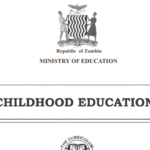National Food and Nutrition Commission (NFNC) has developed a food diary book set to be launched by the end of 2025.
The food Diary aims to enhance nutritional awareness and dietary diversity among Zambians.
According to a statement issued by First Secretary, Press at the Zambian Embassy in Paris, France, Naomi Mweemba, the NFNC developed the food Diary in response to a food consumption and micro-nutrient status survey conducted four years ago, which revealed that nearly three-quarters of women and children in Zambia do not meet the minimum dietary diversity standards.
Speaking during a side event focused on the critical role of healthy diets at the Dutch Residency in Paris, held on the sidelines of the just ended Nutrition for Growth Summit, Commission Executive Director Dr. Muntanga Kampengele highlighted the importance of the food diary book.
Dr. Kampengele said the book will provide a detailed account of locally available ingredients and their nutritional values, equipping communities with the knowledge needed to make informed dietary choices.
“This initiative aligns with the government’s commitment to promoting affordable health solutions by encouraging the consumption of local foods,” she said.
Dr. Kampengele stated that the food diary book will offer insights into common dishes, including preparation methods for common Zambian meals such as cabbage cooked with either oil or peanut butter with tomatoes, and salt, along with a thorough analysis of their combined nutritional benefits.
“The food diary book directly addresses community inquiries regarding appropriate portion sizes and nutritional content, such as the recommended serving size of nshima,” Dr. Kampengele stated.
She emphasized the affordability of a healthy diet in Zambia, particularly during the rainy season when fresh maize and a variety of vegetables are abundant.
Dr. Kampengele further underscored the need to have a minimum level of dietary diversity at all stages of life, ensuring adequate nutrition without harmful elements to promote a healthier Zambia.
“Having a minimum of dietary diversity is important for all stages of life. A balanced diet ensures adequate nutrition, including essential macro-nutrients and micro-nutrients,” Dr. Kampengele added.
The food diary adheres to the World Health Organization (WHO’s) recently approved guidelines on minimum dietary diversity, focusing on balanced diets rich in fruits and vegetables while minimizing sugar, harmful oil and salt intake.
Other panelists who spoke at the same event included academia from various countries and nutrition experts from Zimbabwe, Malawi, Senegal and Japan.



